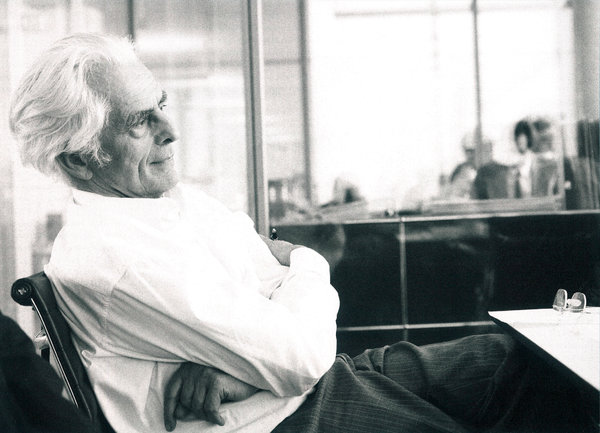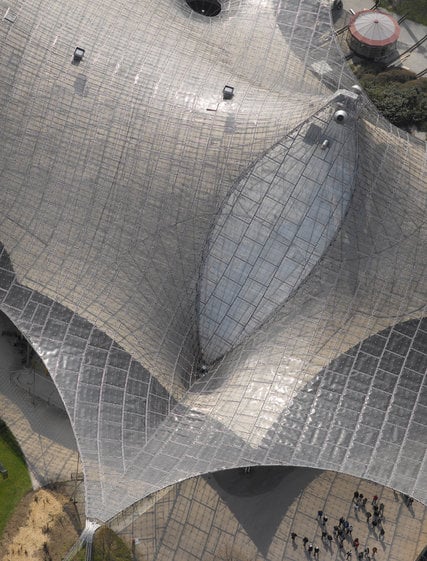Art World
German Architect Frei Otto Dies at 89, Wins 2015 Prizker Prize


Sarah Cascone

Architect Frei Otto died at age 89 on Monday, two weeks before he was to be named the winner of the 2015 Pritzker Prize for architecture. In light of the German engineer and architect’s passing, this year’s Pritzker Prize announcement was abruptly released yesterday.
Among Otto’s best-known works was the airy, tent-like roof canopies he built for the stadium at the 1972 Olympic Games in Munich. Born in Siegmar, Germany, Otto grew up in Berlin and served as a German foot solider during World War II before earning a degree in architecture. He would have turned 90 on May 31.
“The lessons of his pioneering work in the field of lightweight structures that are adaptable, changeable and carefully use limited resources are as relevant today as when they were first proposed over 60 years ago,” said the jury in their citation. “He has embraced a definition of architect to include researcher, inventor, form-finder, engineer, builder, teacher, collaborator, environmentalist, humanist, and creator of memorable buildings and spaces.”

Frei Otto, roof canopies for the stadium at the 1972 Olympic Games in Munich
Photo: courtesy View Pictures/UIG, via Getty Images.
Considered the Nobel Prize for architecture, the Pritzker Prize has never before been awarded to a person who died before the announcement (scheduled for March 23) was made. Fortunately, Pritzker Prize director Martha Thorne was able to meet with Otto at his home in Stuttgart earlier this month, and inform him of the selection.
“I’ve never done anything to gain this prize,” Otto told her. “Prizewinning is not the goal of my life. I try to help poor people, but what shall I say here—I’m very happy.”
Otto has also won the Japan Art Assocation’s Praemium Imperiale prize for architecture (in 2006) and the the Royal Institute of British Architects’ Royal Gold Medal for architecture (in 2005). He will be honored at the Pritzker Prize ceremony on May 15 at Miami’s New World Center.
This past year’s Pritzker laureate was Japan’s Shigeru Ban, known for providing humanitarian aid during times of crisis with innovative temporary shelters constructed from impermanent materials. Ban counted Otto as an influence, and the pair teamed up in Hanover, Germany, to design the Japan Pavilion at Expo 2000. Previous recipients of the honor, first introduced in 1979, include Renzo Piano, Kazuyo Sejima, and Frank Gehry.